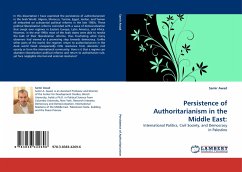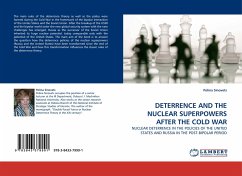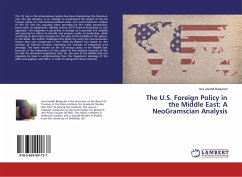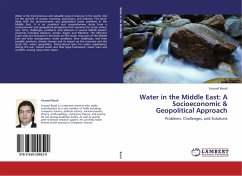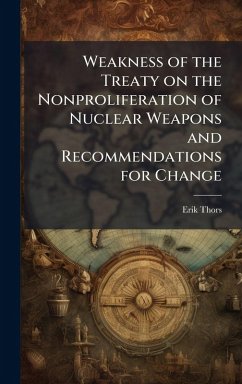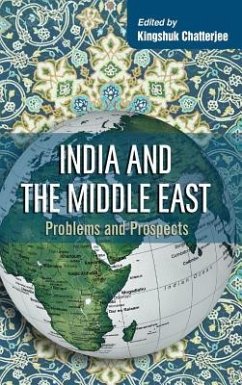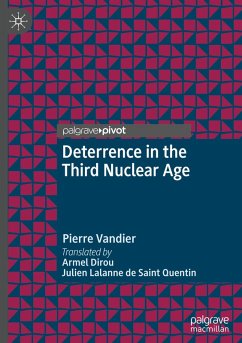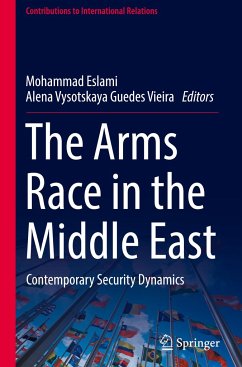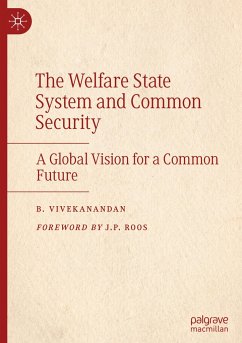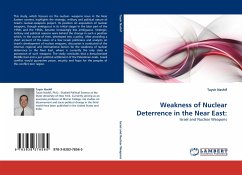
Weakness of Nuclear Deterrence in the Near East:
Israel and Nuclear Weapons
Versandkostenfrei!
Versandfertig in 6-10 Tagen
32,99 €
inkl. MwSt.

PAYBACK Punkte
16 °P sammeln!
This study, which focuses on the nuclear- weapons issue in the Near Eastern context, highlights the strategic, military and political nature of Israel s nuclear-weapons project. Its position on acquisition of nuclear weapons, though ambiguous in its initial stages in the later part of the 1950s and the 1960s, became increasingly less ambiguous. Strategic, military and political reasons were behind the change in such a position which, in the course of time, developed into a policy. After providing a short account of the views of a few Israeli politicians and analysts on Israel s development of ...
This study, which focuses on the nuclear- weapons issue in the Near Eastern context, highlights the strategic, military and political nature of Israel s nuclear-weapons project. Its position on acquisition of nuclear weapons, though ambiguous in its initial stages in the later part of the 1950s and the 1960s, became increasingly less ambiguous. Strategic, military and political reasons were behind the change in such a position which, in the course of time, developed into a policy. After providing a short account of the views of a few Israeli politicians and analysts on Israel s development of nuclear weapons, discussion is conducted of the internal, regional and international factors for the weakness of nuclear deterrence in the Near East, where is currently the only state in possession of such weapons. The study concludes that a denuclearized Middle East and a just political settlement of the Palestinian-Arab- Israeli conflict would guarantee peace, security and hope for the peoples of this conflict-torn region.



